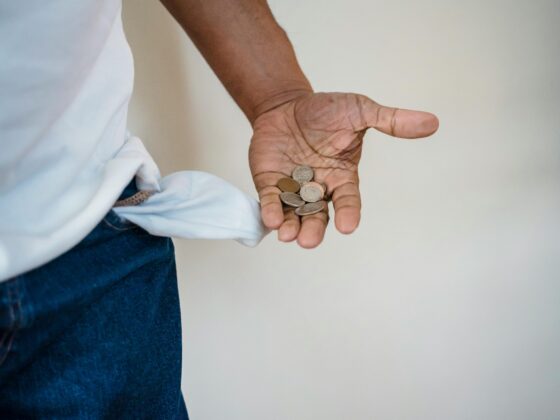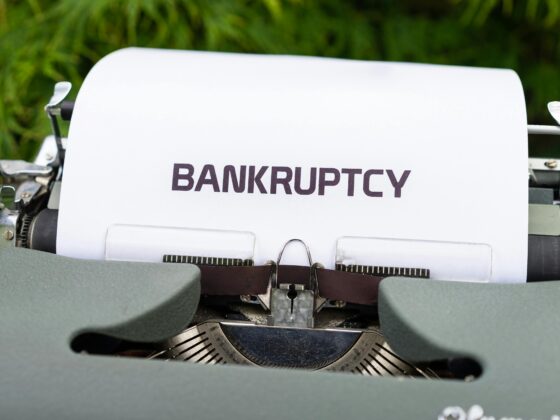There’s a moment in every debt recovery journey that defines everything that comes after. It’s not when you make your final payment or celebrate becoming debt-free. It’s much earlier than that. It’s the moment when you finally find the courage to start—to acknowledge the problem, face the numbers, and commit to change.
This moment requires more bravery than most people realise. It demands that you confront not just financial figures, but deeply rooted fears, shame, and the stories you’ve been telling yourself about money, success, and your own worth. Understanding why this courage is so crucial—and why it’s so difficult to summon—can make the difference between remaining trapped in debt or breaking free to build the financial future you deserve.
The Hidden Psychology Behind Financial Paralysis
The Shame Spiral That Keeps You Stuck
Debt is incredibly common, yet we often do not discuss its impact. Moralising debt can create isolation and shameful feelings. This isolation becomes a prison of its own making. When you’re drowning in debt, shame whispers lies that keep you paralysed:
- “You should have known better”
- “Everyone else has their finances figured out”
- “You’re weak for letting this happen”
- “If people knew the truth, they’d judge you”
Healing begins when we stop carrying debt as a personal shame and start treating it like what it really is—a circumstance, not a character flaw. You are worthy of wealth, worthy of joy, and worthy of a future that isn’t defined by what you owe, but by what you’re building.
The shame spiral works like this: debt creates embarrassment, embarrassment leads to secrecy, secrecy breeds isolation, and isolation makes the problem feel insurmountable. Breaking this cycle requires tremendous courage because it means risking vulnerability and potential judgment.
The Fear That Masquerades as Protection
Fear is often disguised as a protective mechanism. Your brain, wired for survival, interprets financial stress as a life-threatening situation. We can fear being unable to meet financial obligations, receiving constant contact from creditors, and worrying about the effect debt will have on credit scores.
This fear manifests in several ways:
Avoidance behaviours:
- Not opening bank statements or bills
- Avoiding phone calls from unknown numbers
- Refusing to calculate total debt amounts
- Procrastinating on financial decisions
Catastrophic thinking:
- “If I look at the numbers, I’ll discover it’s hopeless”
- “I’ll never recover from this”
- “I’ll lose everything I’ve worked for”
Analysis paralysis:
- Researching debt solutions endlessly without acting
- Waiting for the “perfect” moment to start
- Overcomplicating simple steps
The Physical Toll of Financial Stress
The burden of debt extends beyond the numbers. Debt carries a psychological weight that affects mental, emotional and even physical health. The pressure to repay debt can lead to chronic stress, strained relationships and harmful coping behaviors.
A 2023 survey showed that 70% of Americans report feeling stressed about money. This money-related anxiety has been an issue for a while, with data from 2023 showing that nearly 60% of adults cited inflation as the main contributor to their financial stress.
This stress doesn’t exist in a vacuum. It seeps into every aspect of your life:
Physical symptoms:
- Chronic headaches and muscle tension
- Sleep disruption and insomnia
- Digestive issues and appetite changes
- Weakened immune system
Emotional impact:
- Increased anxiety and depression
- Irritability and mood swings
- Feelings of hopelessness and despair
- Loss of confidence and self-esteem
Relationship strain:
- Arguments about money with partners
- Social withdrawal from friends and family
- Difficulty concentrating at work
- Reduced intimacy and emotional connection
Why Starting Requires Extraordinary Courage
Confronting Your Financial Reality
Taking the first step means exchanging comfortable lies for uncomfortable truths. It requires the courage to:
Face the exact numbers: Most people in debt have only a vague sense of how much they owe. The actual total is often either higher or lower than expected, but both scenarios require emotional processing. Seeing the real numbers means you can no longer live in the fantasy that “it’s not that bad” or the terror that “it’s probably worse than I think.”
Acknowledge personal responsibility: This doesn’t mean self-blame or harsh judgment. Instead, it means accepting that regardless of how you got into debt—whether through circumstances beyond your control, poor decisions, or a combination of both—you are now responsible for getting out. This acknowledgment is empowering but initially feels overwhelming.
Admit that your current approach isn’t working: Starting debt recovery requires admitting that what you’ve been doing hasn’t solved the problem. This can feel like admitting failure, but it’s actually the beginning of wisdom.
Challenging Deep-Rooted Money Beliefs
Taking action on debt often requires confronting beliefs about money that were formed in childhood:
Scarcity mindset:
- “There’s never enough money”
- “Rich people are greedy”
- “Money causes problems”
Worthiness issues:
- “I don’t deserve financial success”
- “Money management is too complicated for me”
- “I’m bad with money”
Control beliefs:
- “Money controls me, not the other way around”
- “Financial success is about luck, not skill”
- “I have no power over my financial situation”
The Vulnerability of Asking for Help
Perhaps no aspect of starting debt recovery requires more courage than asking for help. Shame thrives in the dark, silent lands of taboo, so bringing the light of consciousness and courageous truth-telling can dissolve even the deepest, oldest shards of money shame.
Asking for help means:
Risking judgment: Despite the statistics showing debt is common, there’s still a stigma attached to financial struggle. Admitting you need help can feel like admitting inadequacy or failure.
Showing vulnerability: Money is deeply personal. Sharing your financial struggles means revealing parts of your life that feel private and shameful.
Giving up control: When you ask for help, you’re acknowledging that you can’t solve everything alone. For many people, especially those who pride themselves on independence, this feels like weakness.
The Transformative Power of Taking Action
Breaking the Paralysis Cycle
The moment you take your first concrete action—whether it’s calculating your total debt, making a budget, or calling a creditor—something shifts. You move from being a victim of circumstances to an active participant in your recovery.
Immediate psychological benefits:
Reduced anxiety: Action, even a small action, reduces the anxiety that comes from uncertainty. When you know exactly what you’re dealing with, your brain can stop imagining worst-case scenarios.
Sense of agency: Taking any positive step reminds you that you have power over your situation. You’re not helpless; you’re someone who can create change.
Hope restoration: Action creates momentum, and momentum generates hope. Each step forward proves that progress is possible.
The Courage Snowball Effect
Just as debt can compound negatively, courage compounds positively. Each brave action makes the next one easier:
First brave act: Looking at your total debt Result: Realizes it’s manageable (or at least not as catastrophic as feared) Next brave act: Creating a realistic budget Result: Sees concrete ways to reduce expenses Next brave act: Calling creditors to negotiate Result: Discovers more options than expected
Moving on from a mistake or an undesirable money outcome takes courage. But this courage, once exercised, becomes a muscle that grows stronger with use.
The Five Stages of Financial Courage
Stage 1: Acknowledgement – “I Have a Problem”
This is often the hardest stage because it requires abandoning denial and self-deception. You must acknowledge that:
- Your current financial situation is unsustainable
- Ignoring the problem won’t make it go away
- You need to change your approach
Common barriers:
- Fear of being judged
- Shame about past decisions
- Overwhelmed about where to start
Breakthrough moment: When the pain of staying the same becomes greater than the fear of change
Stage 2: Assessment – “I Can Face the Truth”
This stage involves gathering all the facts about your financial situation without judgment or emotional reaction.
What courage looks like here:
- Opening every bill and statement
- Calculating exact debt totals
- Reviewing credit reports
- Tracking actual spending (not estimated spending)
Common barriers:
- Fear that the situation is worse than imagined
- Perfectionism (waiting for the “right” time or system)
- Overwhelmed at the volume of information
Stage 3: Commitment – “I Will Change This”
Moving from assessment to commitment requires deciding that debt recovery is a priority worth sacrificing for.
What this commitment involves:
- Accepting that recovery will require lifestyle changes
- Prioritising debt payments over other desires
- Committing time and energy to financial education
- Being willing to have difficult conversations
The courage required:
- Facing potential judgment from others about lifestyle changes
- Risking failure after making a public or private commitment
- Accepting responsibility for both the problem and the solution
Stage 4: Action – “I Will Start Today”
This is where courage transforms into discipline. You begin taking concrete steps toward debt freedom.
Initial actions require courage because:
- You might fail or make mistakes
- Results aren’t immediate
- Old habits and temptations will resurface
- You may face resistance from family or friends
What courage looks like:
- Making your first extra debt payment
- Having difficult conversations about money
- Saying “no” to expenses you used to say “yes” to
- Seeking professional help despite the cost
Stage 5: Persistence – “I Will Continue Despite Setbacks”
The final stage of financial courage involves maintaining motivation and discipline over the long term, even when progress feels slow or setbacks occur.
Long-term courage challenges:
- Staying motivated when progress is slow
- Resisting lifestyle inflation when income increases
- Maintaining new habits when the initial motivation wears off
- Dealing with emergencies without creating new debt
Practical Strategies for Building Financial Courage
Start with Microscopic Actions
Courage doesn’t require grand gestures. Often, the most sustainable courage comes from taking actions so small they feel almost insignificant:
Week 1: Log into your bank account every day (don’t analyse, just look) Week 2: Write down one expense each day Week 3: Calculate the total of just one type of debt (credit cards only, for example) Week 4: Make a list of three people who might offer support
These tiny actions build the courage muscle without triggering overwhelming fear responses.
Create Courage Through Community
Find a trusted friend or money ally and start sharing the truth of your shame or challenging money feeling. As you do, you will likely notice that the backpack of money shame becomes lighter.
Building your courage community:
Financial accountability partner: Find someone who will check in regularly about your progress without judgment
Professional support: Credit counsellors, financial advisors, or therapists who specialise in financial anxiety
Online communities: Debt recovery forums, social media groups, or apps that connect people with similar goals
Family allies: Trusted family members who can provide emotional support and practical assistance
Reframe Fear as Information
Instead of viewing fear as a stop sign, learn to see it as data:
Fear translation guide:
- “I’m afraid to look at my debt total” = “This information is important to my recovery”
- “I’m scared to call creditors” = “This conversation could lead to helpful options”
- “I’m worried about failing” = “This goal matters deeply to me”
- “I’m afraid of being judged” = “I value others’ opinions and want to make good choices”
Use the 10-10-10 Rule
When fear threatens to paralyse you, ask:
- How will I feel about not taking this action in 10 minutes?
- How will I feel about it in 10 months?
- How will I feel about it in 10 years?
This technique helps shift perspective from immediate fear to long-term consequences.
Practice Self-Compassion
Overcoming money shame is an inside job. It’s about changing your mindset, addressing your fears, and embracing your financial journey with compassion and gratitude.
Courage requires treating yourself with the same kindness you’d show a good friend facing similar challenges:
Instead of: “I’m so stupid for getting into this mess” Try: “I made some decisions that didn’t work out, and now I’m learning how to make better ones”
Instead of: “I should have known better” Try: “I’m doing the best I can with the information and resources I have”
Instead of: “Everyone else has it figured out” Try: “Everyone faces financial challenges at some point in their lives”
The Ripple Effects of Financial Courage
Personal Transformation
Taking action on debt changes more than just your bank account. It fundamentally alters your relationship with yourself:
Increased self-respect: Every courageous action builds evidence that you can be trusted to follow through on commitments to yourself.
Enhanced problem-solving skills: Navigating debt recovery develops skills that apply to other life challenges.
Greater emotional resilience: Learning to act despite fear builds emotional strength that serves you in all areas of life.
Improved decision-making: Regularly choosing long-term benefits over short-term comfort strengthens your decision-making muscles.
Relationship Benefits
Financial courage doesn’t just improve your relationship with money—it improves your relationships with people:
Increased honesty: Learning to be honest about money often leads to greater honesty in other areas.
Better boundaries: Saying “no” to expenses you can’t afford makes it easier to set boundaries in other relationships.
Enhanced intimacy: Sharing your financial struggles and victories creates deeper connections with trusted people.
Modelling courage: Your courage inspires others to face their own difficult challenges.
Professional Growth
The skills developed through debt recovery often translate into career advancement:
Improved planning skills: Creating and following a debt repayment plan develops strategic thinking abilities.
Enhanced discipline: Consistently choosing to pay extra toward debt builds self-discipline that shows up at work.
Better negotiation skills: Negotiating with creditors develops confidence in professional negotiations.
Increased financial literacy: Understanding debt, interest, and budgeting makes you more valuable in business contexts.
Overcoming the Most Common Courage Killers
“I Don’t Make Enough Money to Make a Difference”
This belief assumes that debt recovery is only possible with dramatic increases in income. The reality is that small, consistent actions often create more lasting change than dramatic gestures.
Truth: Every dollar counts, and developing good habits with small amounts of money creates the foundation for managing larger amounts successfully.
“I’m Too Far Gone”
This all-or-nothing thinking suggests that if you can’t solve everything immediately, there’s no point in trying.
Truth: Debt recovery is always possible, regardless of the amount. People have successfully recovered from six-figure debt loads using the same principles that work for smaller debts.
“I Should Be Able to Figure This Out Alone”
This belief stems from shame and a misunderstanding of how financial education works.
Truth: Most people have never received formal financial education. Seeking help is smart, not weak.
“I’m Too Old (or Young) to Start”
Age-based excuses assume that there’s a “right” time for financial recovery.
Truth: The best time to start was yesterday. The second-best time is today, regardless of your age.
“What If I Fail?”
Fear of failure often prevents people from even attempting debt recovery.
Truth: The only real failure is not trying. Even “failed” attempts teach valuable lessons and build courage for future success.
Creating Your Personal Courage Plan
Step 1: Identify Your Specific Fears
Write down exactly what scares you about addressing your debt:
- Discovering the total amount
- Judgment from family or friends
- Having to change your lifestyle
- Not being able to stick with a plan
- Facing creditors
Step 2: Challenge Fear-Based Assumptions
For each fear, ask:
- Is this fear based on facts or assumptions?
- What evidence do I have that this fear is realistic?
- What’s the worst-case scenario, and how would I handle it?
- What’s the best-case scenario?
- What’s the most likely scenario?
Step 3: Start with Your Smallest Fear
Pick the fear that feels most manageable and take one small action related to it today.
Step 4: Build Your Support System
Identify at least three people who could offer different types of support:
- Emotional support (someone to listen without judgment)
- Practical support (someone with financial knowledge)
- Accountability support (someone to check on your progress)
Step 5: Create Courage Rituals
Develop specific practices that help you build courage:
- Daily affirmations focused on your financial strength
- Weekly review of progress, no matter how small
- Monthly celebration of courageous actions taken
- Quarterly reassessment of goals and strategies
The Moment Everything Changes
There will come a moment in your debt recovery journey when you realise that the courage to start was actually the hardest part. Once you’ve taken that first step, broken through the paralysis, and committed to change, the rest becomes a matter of persistence and refinement.
There is growing evidence that debt and loans are positively associated with psychological distress, as they increase anxiety, distress, and depression levels in individuals, but the reverse is also true. Taking action to address debt consistently reduces psychological distress and increases feelings of control and hope.
The courage to start fixing your debt isn’t just about money—it’s about reclaiming your power, rebuilding your self-respect, and creating a future aligned with your values. It’s about proving to yourself that you can face difficult truths, make hard choices, and follow through on commitments that matter.
Every person who has successfully eliminated debt started exactly where you are right now: scared, overwhelmed, and uncertain about the path forward. The only difference between where you are and where you want to be is the decision to begin and the commitment to continue.
Your debt doesn’t define your worth, your intelligence, or your future potential. It’s simply a problem to be solved, and you have the courage to solve it. The question isn’t whether you’re brave enough—it’s whether you’re ready to discover just how brave you actually are.
The first step is waiting for you. All it requires is the courage to take it.








